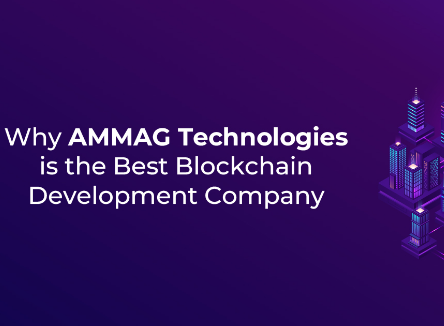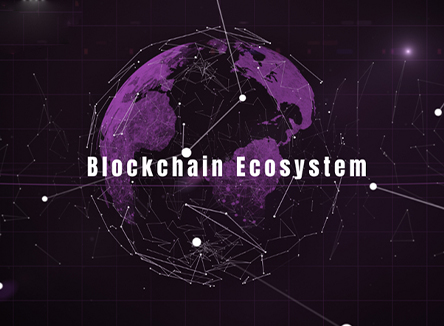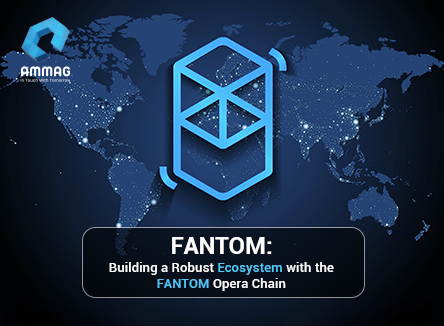A Complete Guide of the Main Challenges of Blockchain Development
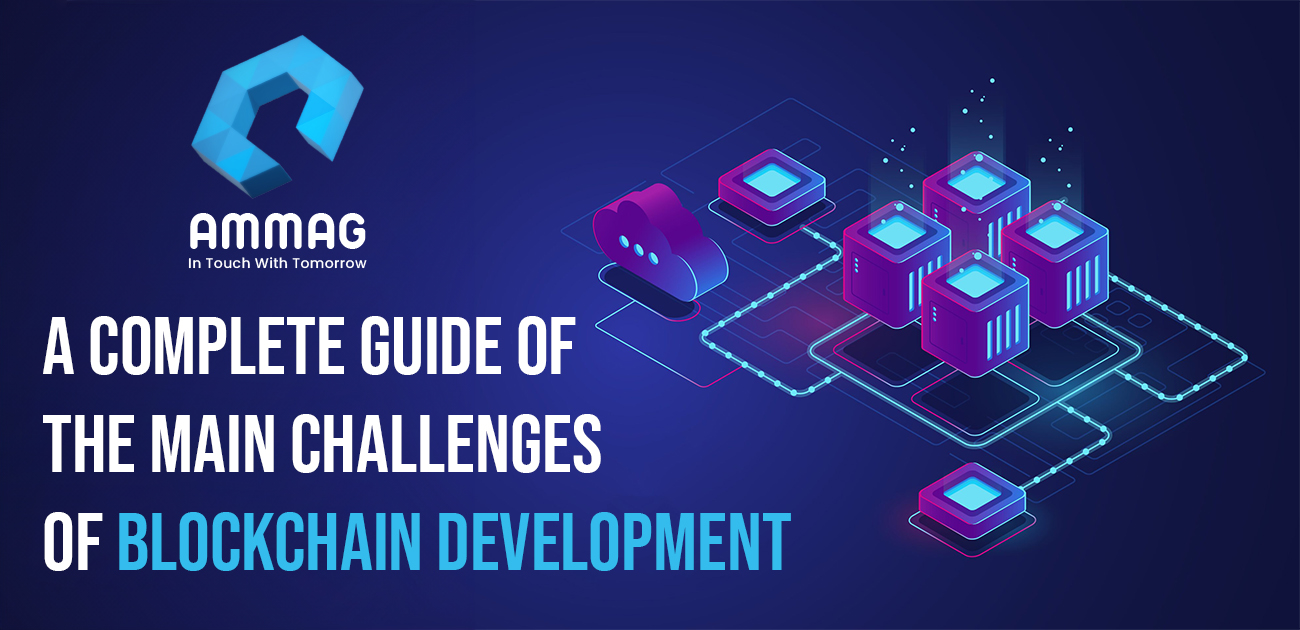
In a world that's becoming increasingly digitized, blockchain technology has emerged as a transformative force. Its potential to revolutionize industries, enhance security, and provide decentralized solutions is undeniable. However, blockchain development is not without its challenges. In this article, we will delve into the key challenges faced by a developer and a blockchain development firms that seek to harness the power of this groundbreaking technology. From scalability concerns to regulatory hurdles, we'll explore the primary challenges of blockchain development.
Before diving into the challenges, it's crucial to grasp the fundamentals of blockchain technology. At its core, a blockchain is a distributed ledger that records transactions across multiple computers. Each set of transactions, known as a block, is linked to the previous one, forming a chain. This decentralized and tamper-resistant nature of blockchain is what sets it apart from traditional centralized systems. While its applications are diverse, from cryptocurrencies to supply chain management, the challenges faced by blockchain development services providers are universal.

Key Challenge of Blockchain Technology
1: Scalability
Blockchain scalability, or the ability to handle an increasing number of transactions efficiently, is a fundamental concern. Popular blockchains like Bitcoin and Ethereum have encountered bottlenecks in the past, leading to slow transaction times and high fees. As blockchain technology gains traction and adoption, addressing scalability becomes paramount. Developers are constantly exploring solutions like sharding and layer-2 protocols to enhance scalability. Blockchain technology solution efforts often focus on optimizing performance while maintaining security.
2: Security
Security is a cornerstone of blockchain technology, and the challenge lies in maintaining it. While blockchain is known for its immutability and resistance to tampering, it's not immune to threats. Smart contracts, self-executing agreements that run on blockchain platforms, can have vulnerabilities. Security breaches, such as the infamous DAO hack on the Ethereum blockchain, highlight the need for thorough auditing and rigorous testing. Must prioritize security measures to ensure the protection of digital assets.
3: Interoperability
In a landscape with a multitude of blockchain platforms, achieving interoperability is challenging but essential. Blockchains often operate in silos, making it difficult for them to communicate and share data. To unlock the full potential of blockchain technology, interoperability is a crucial step. Solutions like cross-chain protocols and middleware are emerging to facilitate seamless data exchange between different blockchains.
4: Regulatory Compliance
Navigating the complex regulatory landscape is a significant challenge for any blockchain services. The decentralized and pseudonymous nature of blockchain can clash with existing financial and legal frameworks. Regulations surrounding cryptocurrencies and initial coin offerings (ICOs) vary widely across countries, leading to compliance uncertainties. Ensuring adherence to local and international laws while promoting innovation is a delicate balancing act for blockchain developers.
5: Talent Shortage
Blockchain technology development demands a specialized skill set, and there is a shortage of experienced professionals in this field. Finding developers well-versed in blockchain, smart contract development, and cryptographic principles can be challenging. Blockchain services companies are in a constant race to attract and retain top talent in a competitive job market. Only the companies working on 360-Degree Blockchain development are catering to this challenge.
6: Energy Consumption
Proof-of-work (PoW) blockchains, like Bitcoin, have faced scrutiny due to their high energy consumption. The process of mining, which validates transactions and secures the network, requires substantial computational power. Developers are exploring alternative consensus mechanisms, such as proof-of-stake (PoS), to mitigate the environmental impact while maintaining security.
7: User Experience
Blockchain's user experience, or UX, has room for improvement. Wallet management, private key handling, and onboarding processes can be daunting for newcomers. Blockchain services companies must prioritize user-friendly interfaces and educational resources to make blockchain technology more accessible.
8: Adoption and Use Cases
Blockchain technology, while promising, is still in the early stages of adoption. Identifying viable use cases and convincing industries to embrace this technology can be challenging. A Blockchain services company needs to showcase real-world applications that provide tangible benefits, from supply chain transparency to cross-border payments.
9: Privacy
Blockchain's transparency, while an advantage in many cases, can be a disadvantage when it comes to user privacy. Striking a balance between transparency and user data protection is a challenge. Solutions like zero-knowledge proofs and privacy-focused blockchains are emerging to address this issue.
10: Network Congestion
High network congestion can lead to slow transaction confirmation times and increased fees. This is a concern, especially during periods of heavy blockchain usage. Scalability solutions and network upgrades are vital to alleviate congestion and improve the overall user experience.

Overcoming Challenges for a Brighter Future
The challenges of blockchain development are real, but they are not impassable. The industry's innovative spirit has given rise to various solutions and workarounds that continue to push the boundaries of what blockchain technology can achieve. As scalability improves, security tightens, and regulations become clearer, blockchain's potential to disrupt industries will become more evident.
Blockchain technology solution and blockchain development is a dynamic and evolving field. The blockchain developer or a blockchain services company that navigates these challenges and pushes the boundaries of what's possible will play a pivotal role in shaping the future of this transformative technology.
Blockchain Development Solutions
In the ever-evolving landscape of blockchain development, companies specializing in innovative solutions are at the forefront. As we navigate the challenges of blockchain development, it's essential to highlight the valuable role that such firms play in addressing these hurdles.
Leading in Blockchain Services
These companies have established themselves as leading blockchain services providers, offering a wide range of solutions that cater to the diverse needs of businesses and industries. Their expertise spans across various aspects of blockchain technology development, including but not limited to smart contract development, Decentralized Application development, and blockchain-based system integrations.
One of the notable challenges in the blockchain space is the shortage of skilled professionals, but these firms have teams of highly skilled and experienced blockchain developers. These professionals are well-versed in blockchain technology, cryptographic principles, and smart contract development. They actively address the talent shortage challenge by investing in continuous training and development for their teams, ensuring they stay up-to-date with the latest advancements in the field.
Innovative Solutions for Scalability
Blockchain scalability is a critical issue that has been a point of concern in the community. However, these companies have been actively involved in research and development to address this challenge. They are exploring various strategies such as sharding and layer-2 solutions to enhance the scalability of existing blockchains. These firms are committed to optimizing blockchain performance without compromising on security.

Navigating Regulatory Compliance
The rapidly evolving regulatory landscape is a significant challenge for blockchain developers and businesses. These experienced firms assist companies in navigating complex regulatory frameworks. They work closely with legal experts to ensure that the blockchain solutions they provide adhere to relevant laws and regulations. These companies are dedicated to promoting blockchain innovation while ensuring that projects are in full compliance with the applicable legal standards.
Enhancing User Experience
The user experience (UX) in blockchain applications is another challenge that these firms address. Blockchain can be daunting for newcomers due to the complexities of wallet management, private key handling, and onboarding processes. To improve the user experience, these companies focus on developing intuitive and user-friendly interfaces. They understand the importance of making blockchain more accessible to a broader audience, and their design and development efforts reflect this commitment.
Privacy-Oriented Solutions
Privacy concerns in blockchain technology are growing, and companies are actively developing solutions to address this challenge. They are exploring innovative privacy-focused blockchains and zero-knowledge proof technologies to provide users with more control over their data while maintaining the transparency and security inherent to blockchain.
The Role of AMMAG Technologies in Overcoming Blockchain Challenges
In the dynamic and ever-changing field of blockchain technology, AMMAG Technologies stands out as a company dedicated to providing cutting-edge solutions. Their commitment to addressing the challenges of scalability, security, regulatory compliance, user experience, and privacy exemplifies their leadership in the blockchain industry.
AMMAG Technologies actively contributes to the blockchain community by participating in research, development, and innovation. Their work in optimizing blockchain performance, enhancing security, ensuring regulatory compliance, and improving user experience plays a pivotal role in advancing the adoption of blockchain technology.
For further information, you can see our portfolio: Ammag Technologies Portfolio
As blockchain technology continues to evolve, it's essential to recognize the contributions of companies that are driving progress and innovation. They are not only overcoming the challenges of blockchain technology solution providers and blockchain development but also pushing the boundaries of what's possible in this transformative technology.
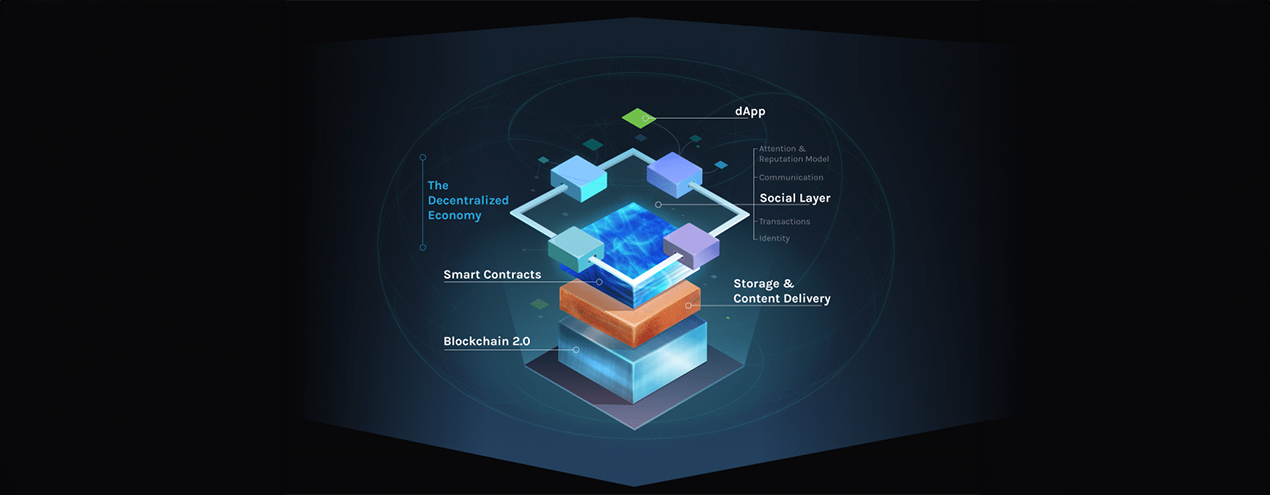
Conclusion:
In conclusion, the challenges of blockchain development are as diverse as the technology itself. From scalability and security to regulatory compliance and user experience, each hurdle presents an opportunity for innovation and growth. As blockchain technology continues to mature, its potential to revolutionize industries and enhance security remains promising.
Blockchain Technology Solution provides a path to decentralized solutions that can transform industries. Overcoming these challenges requires the collective efforts of blockchain services companies and the wider blockchain community. In the face of these obstacles, the future of blockchain technology shines even brighter.
This article has provided an overview of the main challenges faced by blockchain development, and it explores the innovative solutions that are being developed to overcome these obstacles. As the blockchain industry continues to evolve, it is likely that new challenges will emerge, but with the right combination of innovation and determination, the potential of blockchain technology is boundless. Both, a blockchain technology solution provider and a blockchain services company, are at the forefront of this digital revolution, working to harness the full potential of this groundbreaking technology. The challenges may be significant, but the rewards are even greater.







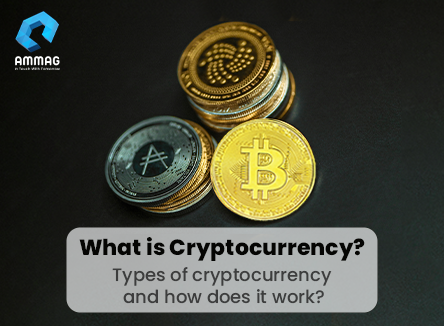





-and-How-Does-It-Work/Main-Image_02.jpg)

